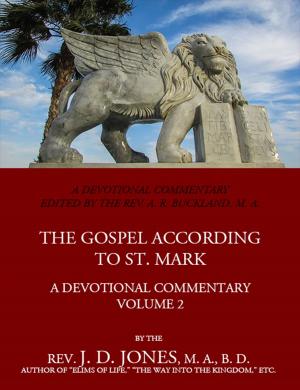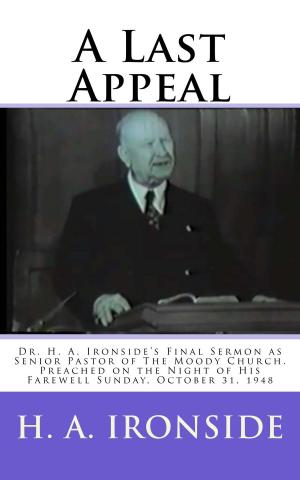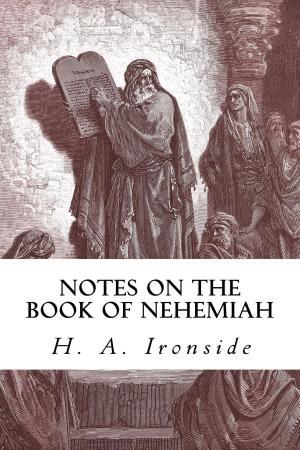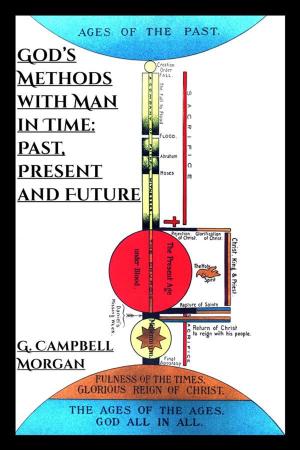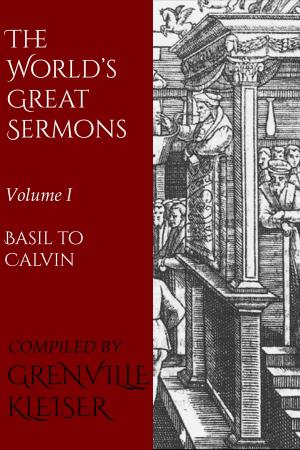Development of Antichrist
Nonfiction, Religion & Spirituality, Christianity, Christian Literature, Bible & Bible Studies, Criticism & Interpretation| Author: | Andrew Bonar | ISBN: | 1230001943115 |
| Publisher: | CrossReach Publications | Publication: | September 29, 2017 |
| Imprint: | Language: | English |
| Author: | Andrew Bonar |
| ISBN: | 1230001943115 |
| Publisher: | CrossReach Publications |
| Publication: | September 29, 2017 |
| Imprint: | |
| Language: | English |
The principle of interpreting the prophetic portions of Holy Scripture as literally as the historical is recognized throughout the following pages, and it is upon this ground alone that the writer builds his hope of escaping a charge of presumption in submitting them for consideration, as he has ventured to do. They are meant to be a protest against the confusion which has been introduced by metaphorical indulgences, and not as an additional fancy to increase the bewilderment felt by many who, like himself, are honestly seeking to know the truth of what concerns us all so deeply.
The rule laid down is that Scripture language is to be taken literally in every instance where the context does not, clearly and unmistakably, show it to be metaphorical. There surely is nothing unreasonable in such a position, and if there were, it is for those who dispute to prove it so and also to define, with equal distinctness, the principle on which they would proceed, showing, to begin with, why words occurring in one part of Scripture are to bear a different construction from what they do in another.
We have its own authority for saying that in it are things "hard to be understood," and a knowledge of this may well deter any from dogmatizing upon details; but can it be said that this is to interfere with the principle of a literal interpretation itself or the leading deductions which, if words have any meaning at all, follow inevitably from it? Can it really be deliberately believed that God’s Word is so darkly and unintelligibly expressed as to have left the prophetic portion of it an open field for every wild and unbridled speculator to enter upon, or that men may venture to assign to terms occurring there a meaning altogether different from what truth and soberness assign to them elsewhere?
If the great enemy of all truth can no longer bury prophetic truth, as till of late years he has pretty nearly succeeded in doing, it would seem as if his efforts were now directed to deluge the world with false suggestions, so as to bewilder and perplex men’s minds, and it would therefore be well for us to recall, in the deceivableness of our days, how our Lord Himself met the delusions in His. Was it not by a constant and consistent appeal to the inspired literality of Scripture? "It is written," was His answer, and it is to the same refuge His followers must betake themselves, if they would escape the increasing confusion in which the neglect of this great principle is involving prophetic as well as all other Scripture investigation.
The principle of interpreting the prophetic portions of Holy Scripture as literally as the historical is recognized throughout the following pages, and it is upon this ground alone that the writer builds his hope of escaping a charge of presumption in submitting them for consideration, as he has ventured to do. They are meant to be a protest against the confusion which has been introduced by metaphorical indulgences, and not as an additional fancy to increase the bewilderment felt by many who, like himself, are honestly seeking to know the truth of what concerns us all so deeply.
The rule laid down is that Scripture language is to be taken literally in every instance where the context does not, clearly and unmistakably, show it to be metaphorical. There surely is nothing unreasonable in such a position, and if there were, it is for those who dispute to prove it so and also to define, with equal distinctness, the principle on which they would proceed, showing, to begin with, why words occurring in one part of Scripture are to bear a different construction from what they do in another.
We have its own authority for saying that in it are things "hard to be understood," and a knowledge of this may well deter any from dogmatizing upon details; but can it be said that this is to interfere with the principle of a literal interpretation itself or the leading deductions which, if words have any meaning at all, follow inevitably from it? Can it really be deliberately believed that God’s Word is so darkly and unintelligibly expressed as to have left the prophetic portion of it an open field for every wild and unbridled speculator to enter upon, or that men may venture to assign to terms occurring there a meaning altogether different from what truth and soberness assign to them elsewhere?
If the great enemy of all truth can no longer bury prophetic truth, as till of late years he has pretty nearly succeeded in doing, it would seem as if his efforts were now directed to deluge the world with false suggestions, so as to bewilder and perplex men’s minds, and it would therefore be well for us to recall, in the deceivableness of our days, how our Lord Himself met the delusions in His. Was it not by a constant and consistent appeal to the inspired literality of Scripture? "It is written," was His answer, and it is to the same refuge His followers must betake themselves, if they would escape the increasing confusion in which the neglect of this great principle is involving prophetic as well as all other Scripture investigation.


